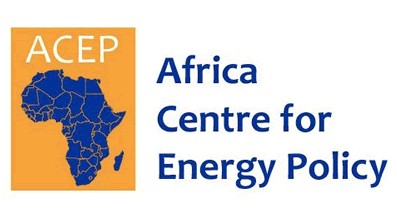Ghana risks losing significant revenues from Sheini iron ore project – ACEP
 The Africa Centre for Energy Policy (ACEP) on Wednesday said Ghana risk losing significant revenues from Sheini iron ore project whose development contract was yet to be awarded.
The Africa Centre for Energy Policy (ACEP) on Wednesday said Ghana risk losing significant revenues from Sheini iron ore project whose development contract was yet to be awarded.
The Centre, based its argument on the absence of an open competitive bidding process that ensured efficiency and transparency, saying till date, mining concessions were awarded on a first come first serve basis, a process that depended on the discretionary powers of authorities, and were considered the pathway to rent-seeking and corruption.
It said the process also yielded itself to the risk of granting generous terms that may result in sub-optimal outcomes, and called on government to immediately revise the mining laws to make the open and competitive bidding process a compulsory procedure to select the best candidate, maximise revenues and minimise the risk of moral hazards among agents of the State.
Ms Pauline Anaman, the Head of the Policy Unit of the Africa Centre for Energy Policy, who made a presentation at a national stakeholders’ forum on mineral extraction for sustainable development in Accra, said the Centre, had completed a baseline study on the Sheini Iron Ore deposits project in the Northern Region.
She said Sheini iron ore deposits project, involved the exploration of iron ore in commercial quantities, and had the potential to expand the country’s economic progress, with a trickling down effects of social progress and sustainable development for its people.
The study context, she explained, was compared to that of Guinea’s Simandou iron ore project in terms of the mining fiscal policy against the fiscal provisions of the contract between the Government of Guinea and Simfer S.A, to determine the level of convergence concerning the two, and use the findings as an important guide for improving Ghana’s situation.
She said although there had been some policy improvements, citing the Mineral and Mining Act, (Act 703), 2006, and the new Income Tax Act 2015 (Act 896) which provided some incentives to attract investors, there were still some major gaps that needed to be addressed to ensure stakeholder involvement, transparency, planning, basic infrastructure development, as well as investment in skills of communities.
She said the ACEP recommends that government introduce flexibility into the fiscal regime through progressive taxes to capture the benefits of changes in future market and political conditions, to ensure fairness and balance the interest of both the investor and government.
Ms Anaman said the study also suggested the building of the modelling capacity of government institutions such as the Ministry of Mines and Natural Resources, Ghana Revenue Authority and Parliament for quality evaluation of fiscal negotiations of mining agreements.
It further called for the introduction of a debt financing restrictions to prevent the adverse effect of funding investments, and also invest in railway infrastructure that connected Sheini with the harbours in the South, to close the communication gaps between local economies in the northern and southern Ghana.
Mr Benjamin Boakye, the Executive Director of the Africa Centre for Energy Policy, said the Sheini iron ore project presented a great opportunity for the country and especially for the resident communities because there was no concession agreement signed yet, leaving government with an occasion to involve the people in the negotiations, listen to their needs and advice and also read the ACEP’s recommendations for effective implementation.
He said there should be well planned livelihood empowerment programmes, community engagement and infrastructure development for the expansion of the area.
Source: GNA
